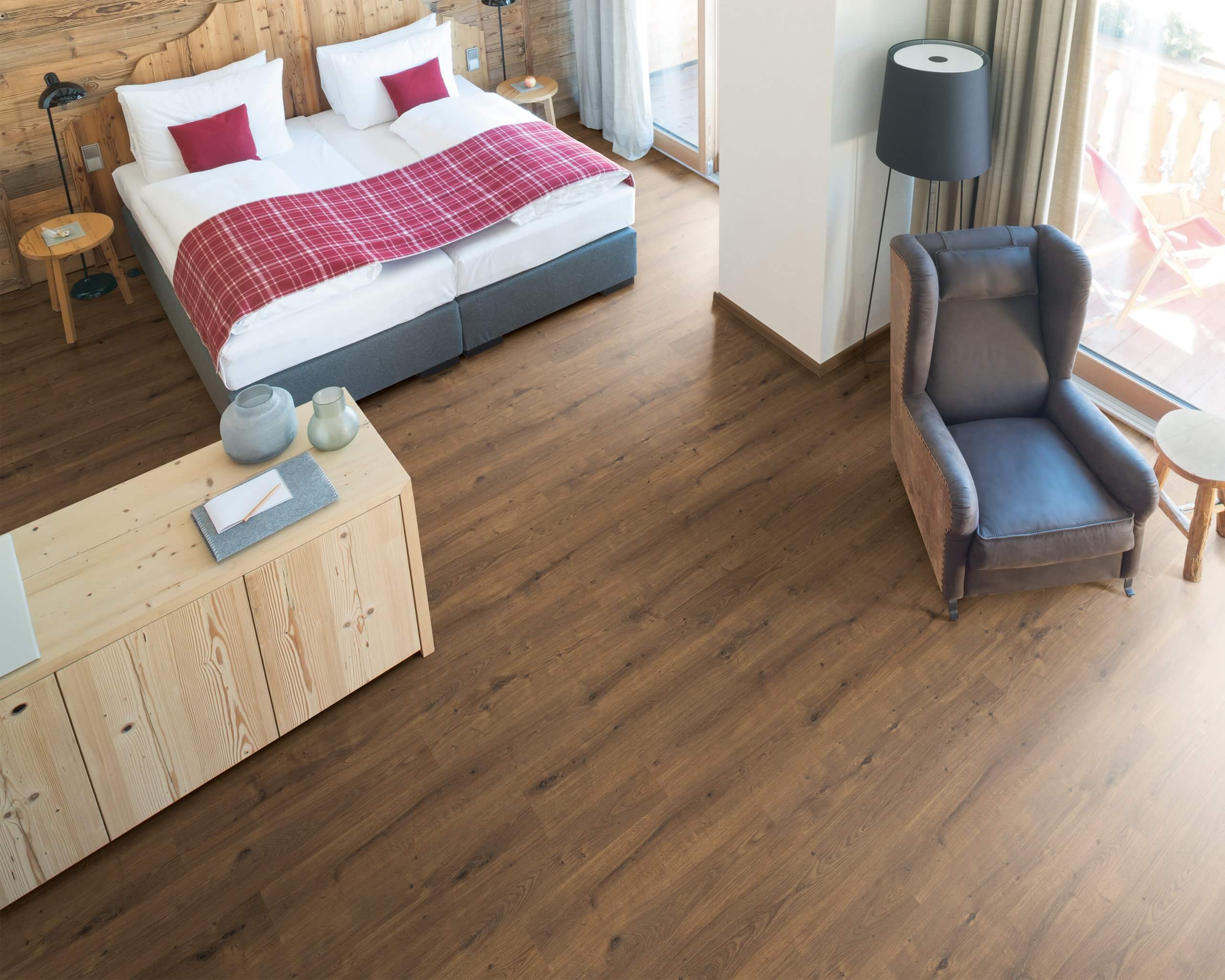“During Covid, the demand for flooring just spiked,” said Sven Johnson, Director of Flooring for Taiga Building Products. “Over the last 120 days, we’ve heard that walk-in business at box stores has decreased, so it appears people are doing fewer DIY projects. New home construction continues at a brisk pace, however. There’s also an increase in demand for multi-family homes and rental properties.”
Johnson added that the builders he deals with are booked well into 2023 for existing projects. However, as with many industries, the spectre of higher interest rates may shift that landscape.
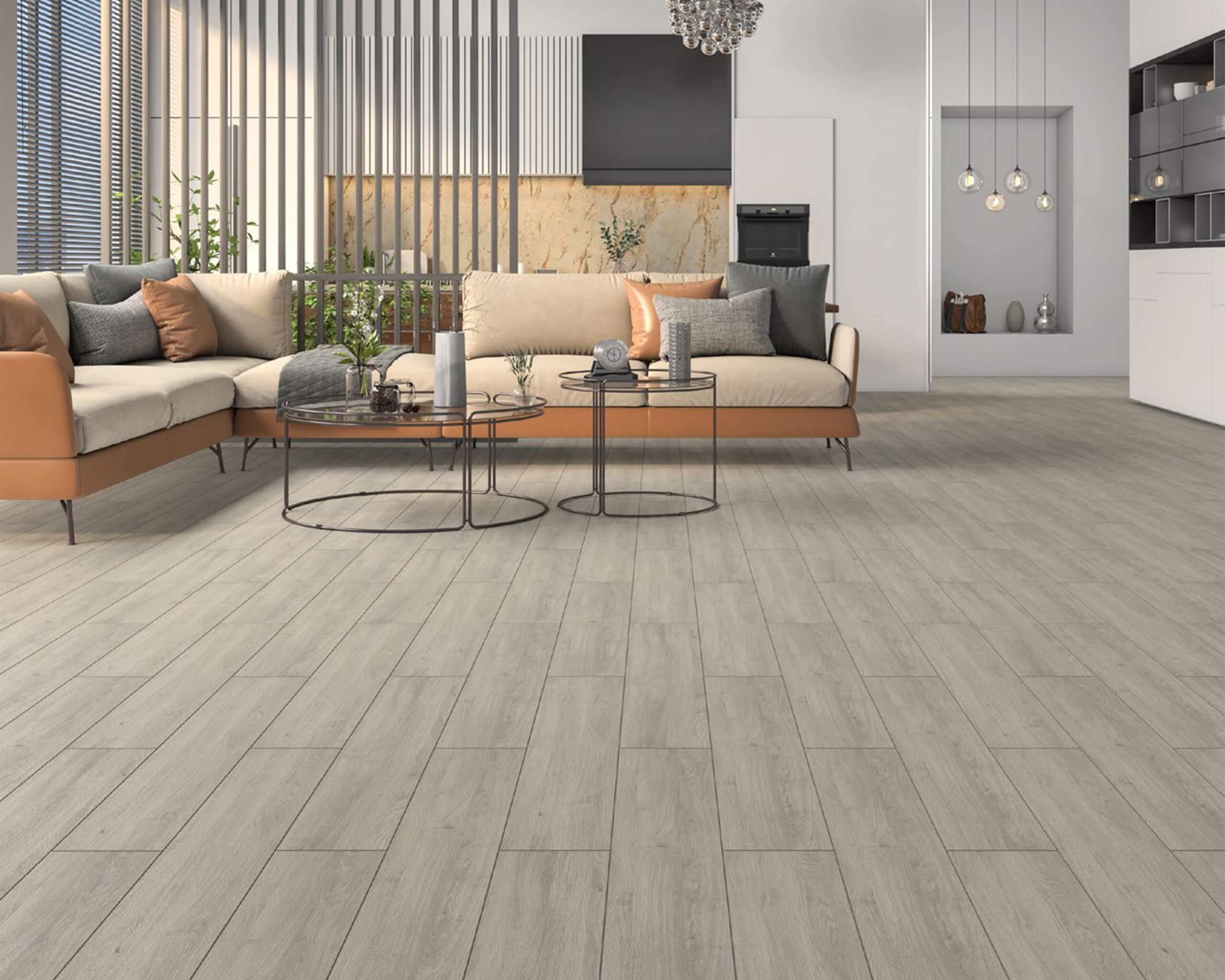
Photo courtesy of Goodfellow Inc.
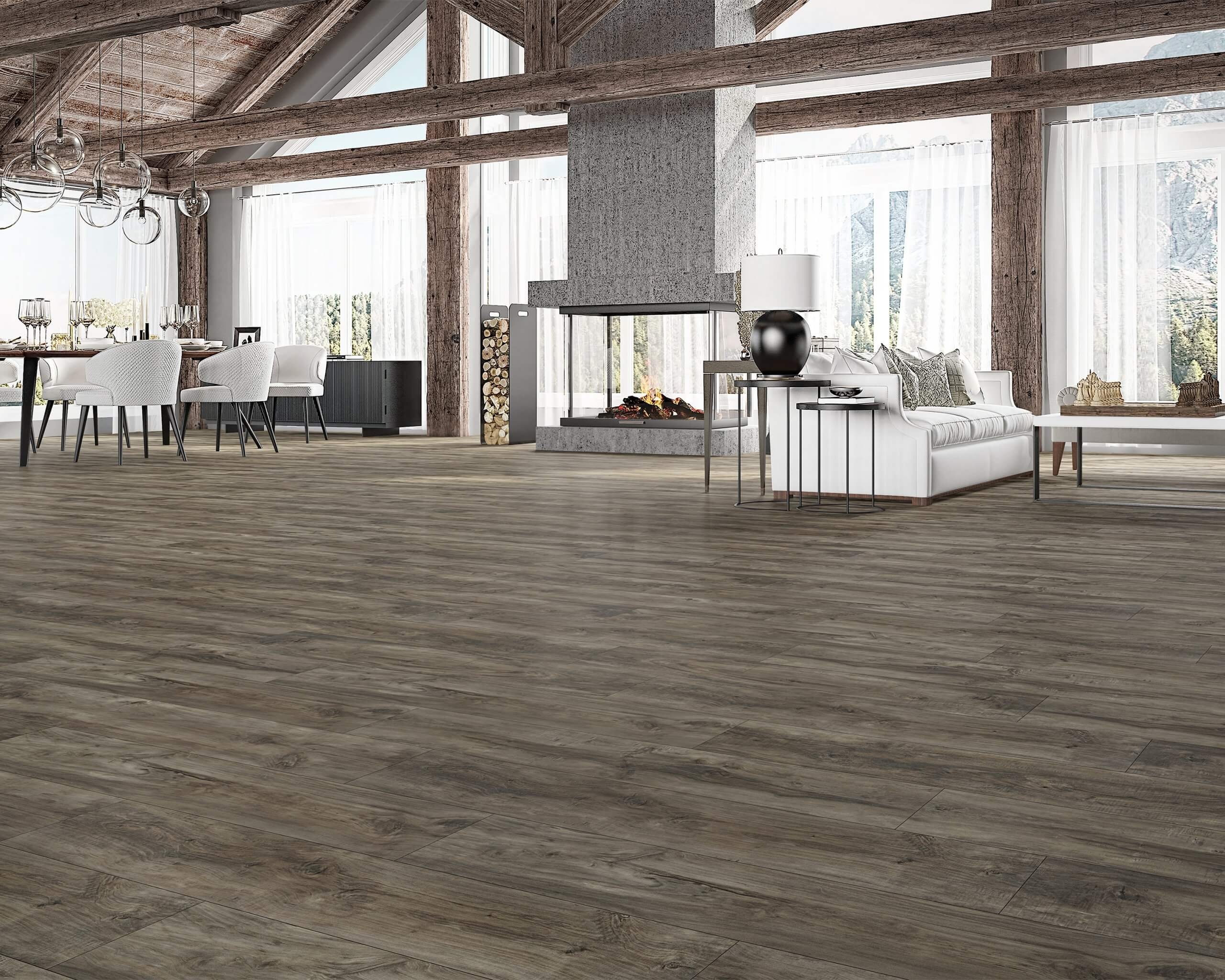
Photo courtesy of Goodfellow Inc.
EVOLVING TRENDS
While the demand for flooring products remains high, certain trends continue to evolve. In particular, we may be seeing a resurgence in laminate flooring, as improved durability allows it to compete with best-selling vinyl stone plastic composite (SPC) options.
Hans Caspersz, National Accounts Sales Manager at Shnier, Gesco LP, told Contractor Advantage that the top flooring category is still luxury vinyl flooring. Vinyl SPC boasts outstanding performance, withstanding spills, scuffs and scratches thanks to its tight, waterproof fit and easy-clean, resilient surface. This makes it a favourite amongst homeowners who are looking for durable, easy-to-install flooring that stands up to high traffic, while remaining attractive, in a wide range of styles and colours.
Jeff Morrison, Vice President of National Accounts with Goodfellow Inc., agrees with Caspersz.
“The number one in-demand product for flooring is vinyl SPC. It’s the most sought-after material in retail and now even in new home construction, and this has been the trend for several years.”
He added: “During Covid, we saw a high demand for SPC products while people were doing their own renovations, and it continued to take a bite out of the share of laminate flooring and entry-level hardwood sales. However, what we’ve seen in the last eight months or so is a resurgence of demand for laminate flooring, due to its strong AC (abrasion criteria) rating, and its strength and thickness. Most people are using five-millimetre vinyl, so there are issues with height differences on installations where the vinyl is butting up to an adjoining floor covering, which is significantly thicker most of the time. Also, laminate is more forgiving where subfloors aren’t dead level.”
If this trend continues, Morrison said the market may return to using laminates on a wider scale, especially since most laminate manufacturers now offer water-resistant options.
NATURAL COLOURS
Colour trends fluctuate, but for the last while, grey tones have been the most popular colour for SPC and laminate flooring. It appears this is slowly shifting, as natural colours begin to take over.
“There’s a trend towards lighter colours, including a shift towards natural oak and natural maple visuals,” said Morrison. “While grey has been trending for quite some time, we’re also seeing a warming of the grey tones, adding a bit of brown to what we’re calling ‘greige.’
“Flooring is a fashion business. Colours are driven by architects and the specification community. When they see that colours have been around for a while, they start introducing alternatives into the flooring palette. They start to trend when consumers see them in new homes; and of course, we’re out there promoting them. Flooring colour pallets are constantly evolving to stay fresh and eye-catching.”
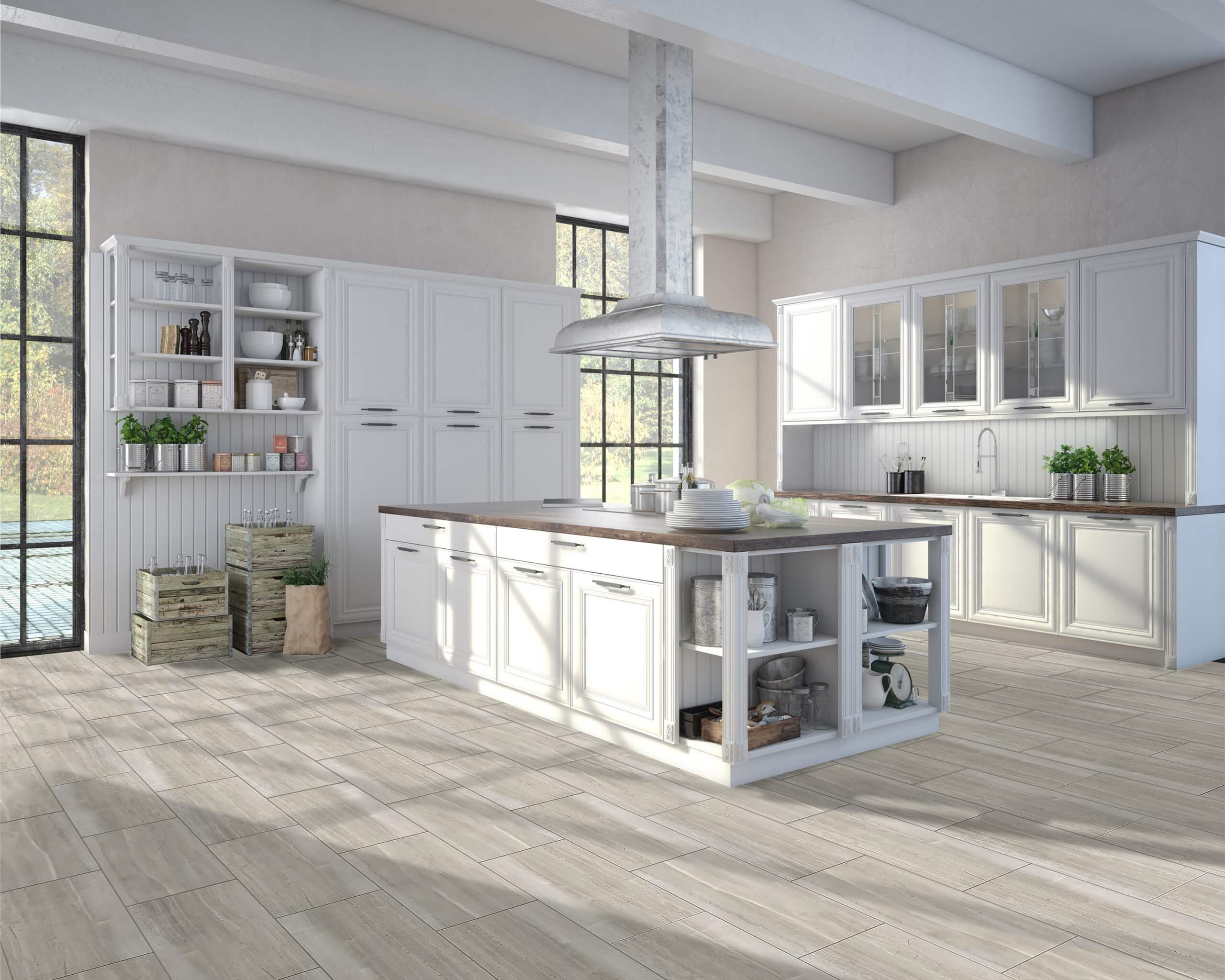
Photo courtesy of Shnier, Gesco LP
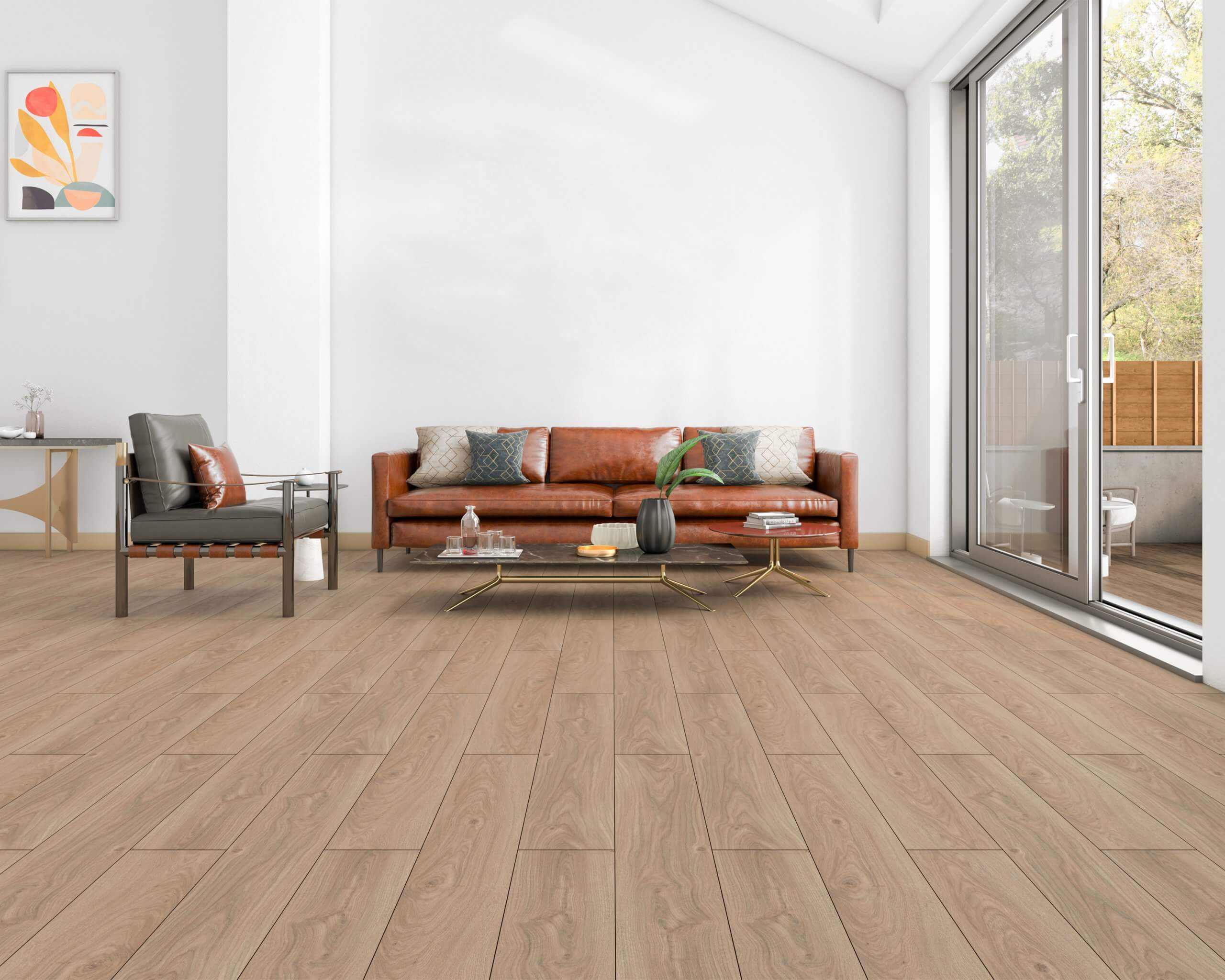
Photo courtesy of Goodfellow Inc.
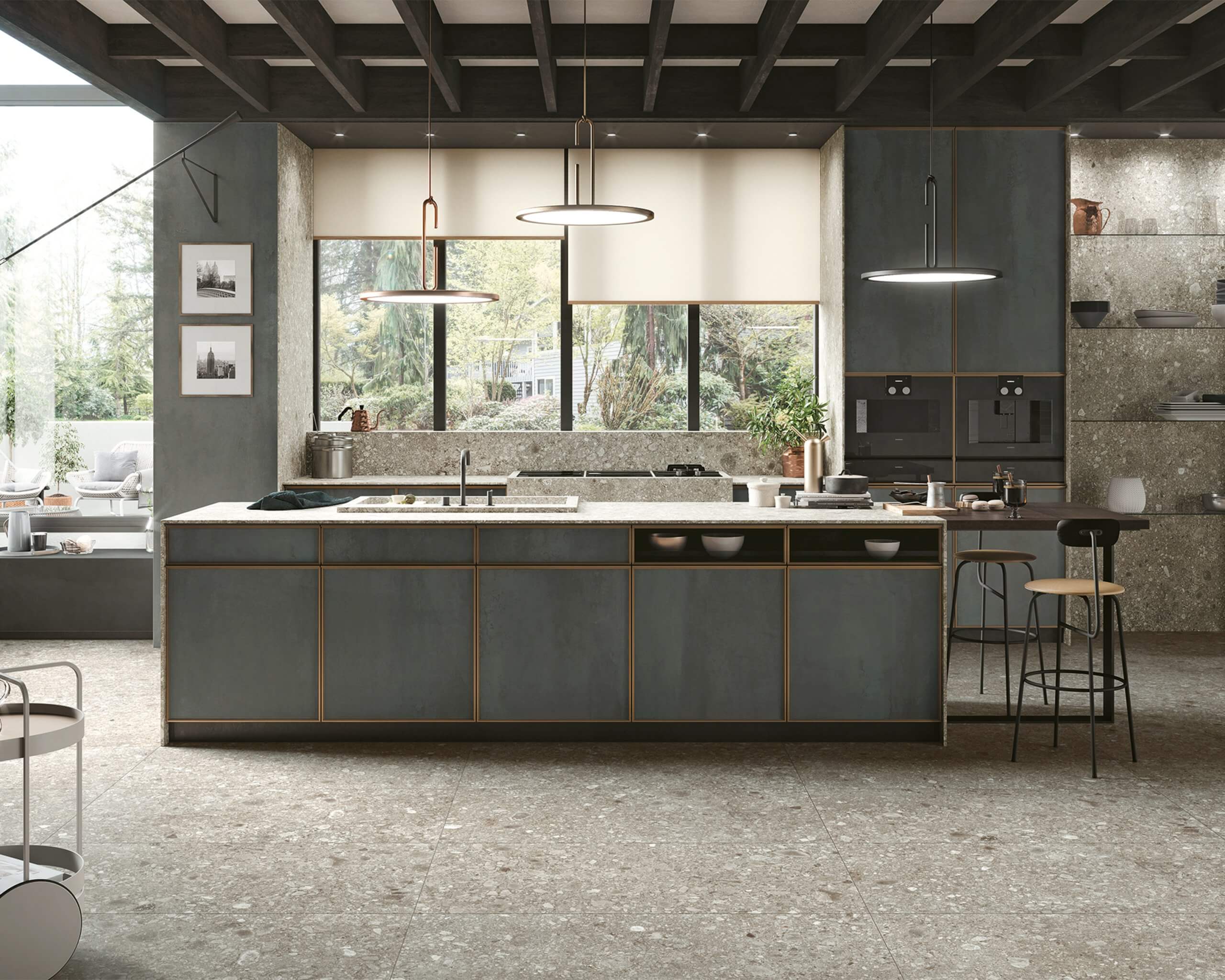
Photo courtesy of Centura Tile
VINYL AND LAMINATE ALTERNATIVES
Tiled flooring is still a beautiful and durable option, according to Angela Molezzi, Sales Manager with Centura Tile in Toronto. While SPC and laminates are in high demand, she said porcelain tiles are a tried-and-true floor treatment.
“In kitchens, I would still stick with porcelains,” she said. “Personally, I think it has a more elegant look. People are leaning more toward the glossy style of tiles, moving away from the matte style that was popular. The myth of glossy tiles being slippery has been dismissed. As long as you have your grout joints in the correct spots, tile isn’t slippery in the way that people think it is.”
Molezzi added: “We sell a lot of the SPC and laminate flooring, but our biggest seller is tile. Current colour trends are towards teals and greens. Textured and geometric shapes are popular, and even floral looks have made a comeback.”
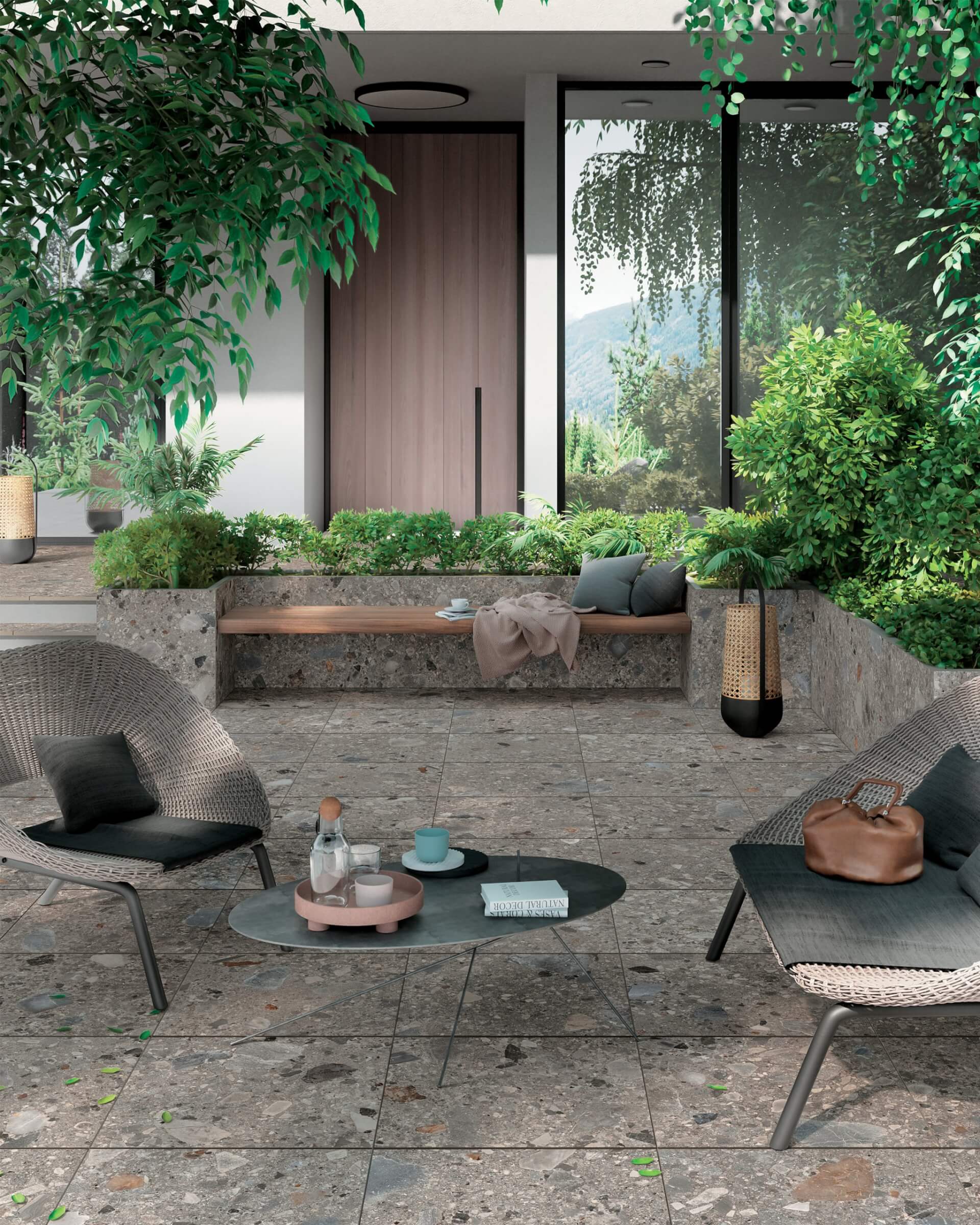
Photo courtesy of Centura Tile
In open concept homes, people are concerned with having uniform flooring throughout. Mixing and matching materials and styles isn’t as popular anymore.
“The sizing of the tiles has definitely changed, too,” said Molezzi. “Everyone is going bigger. At one time, 12”x 12” was pretty popular, but now we’re seeing people move towards 12” x 24” and even 24” x 48”. We’re even seeing people installing porcelain slabs that are 5’ X 10’, reducing the need for as many grout joints. It gives the visual of just one continuous piece.”
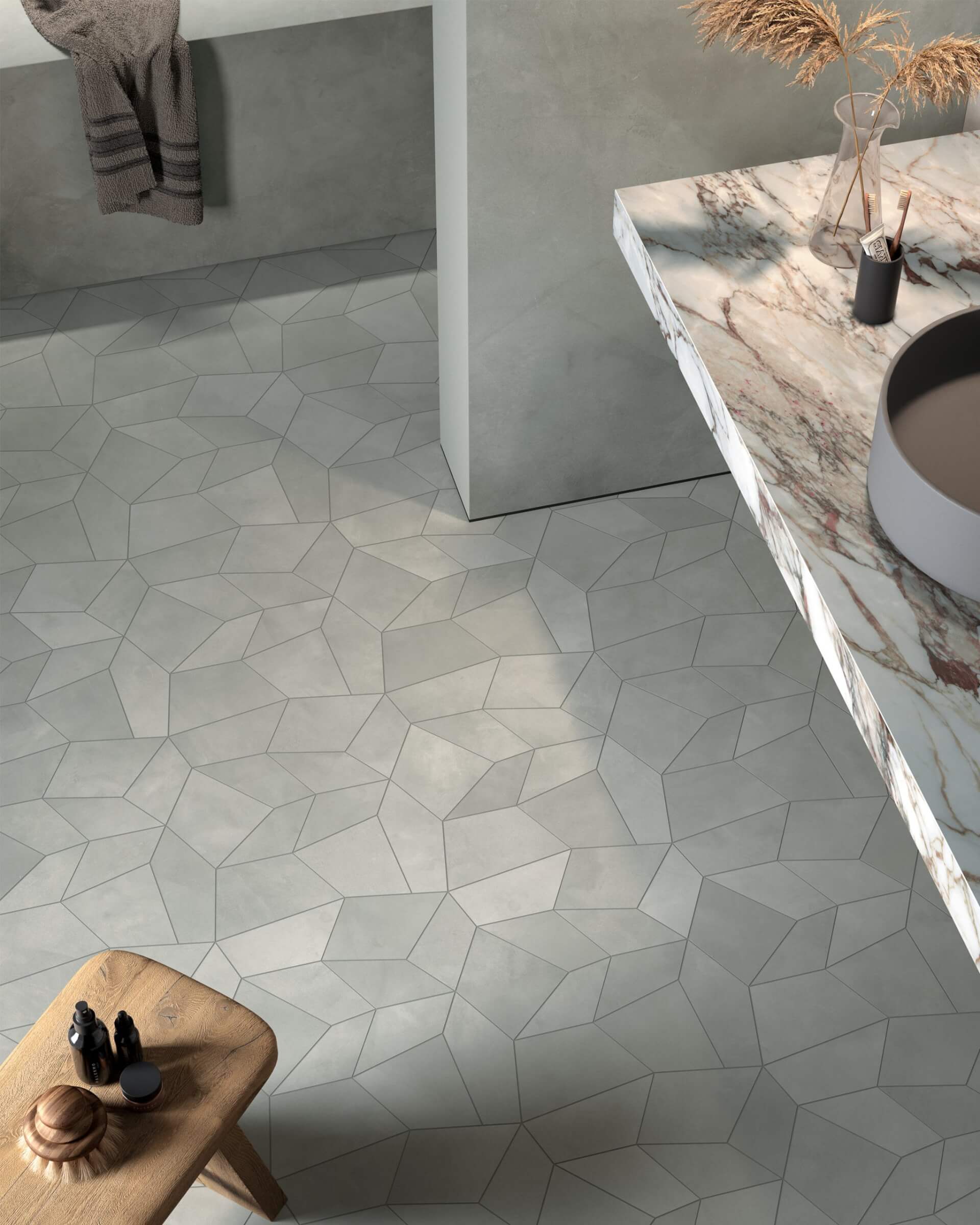
Photo courtesy of Centura Tile
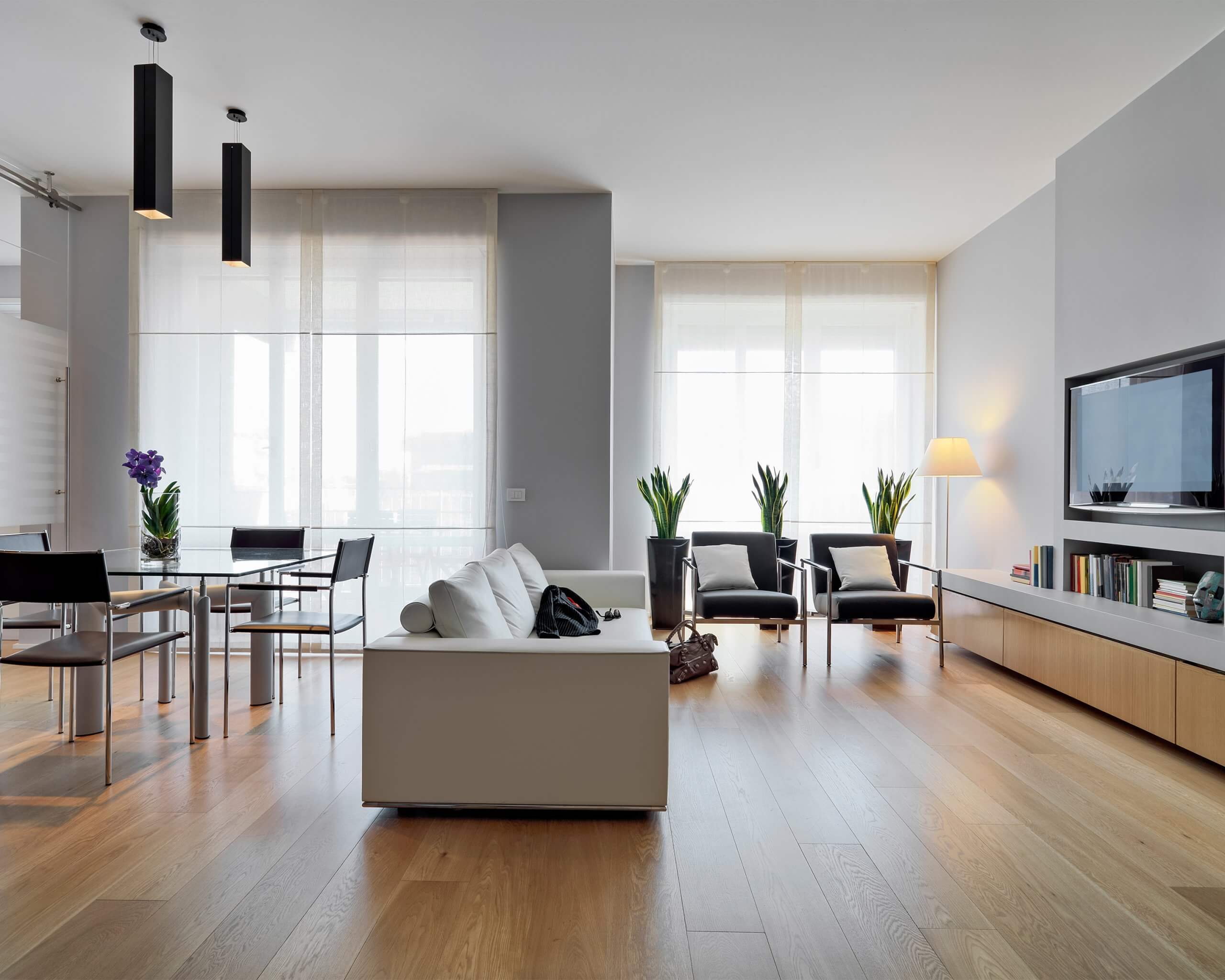
Photo courtesy of AFA
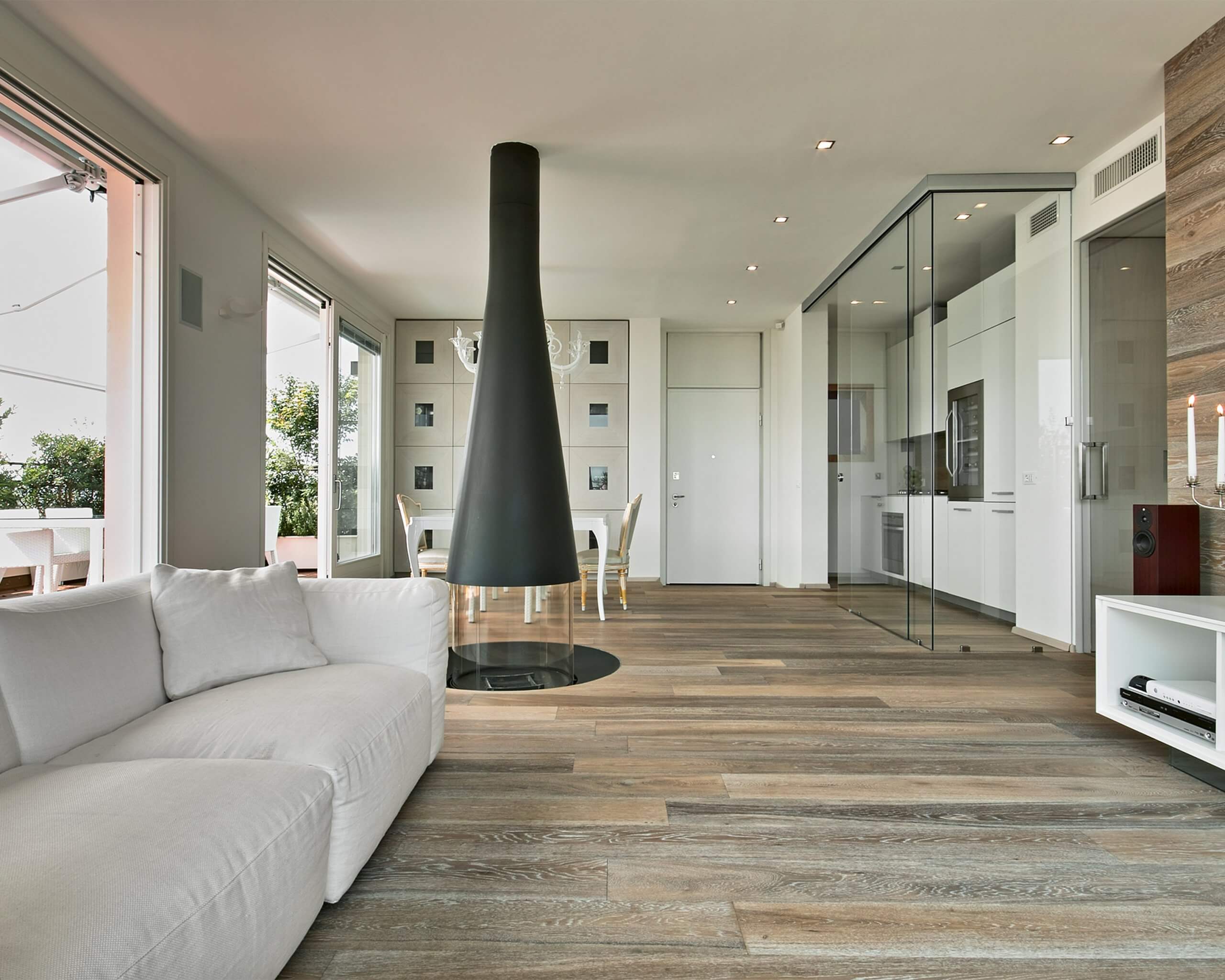
Photo courtesy of AFA
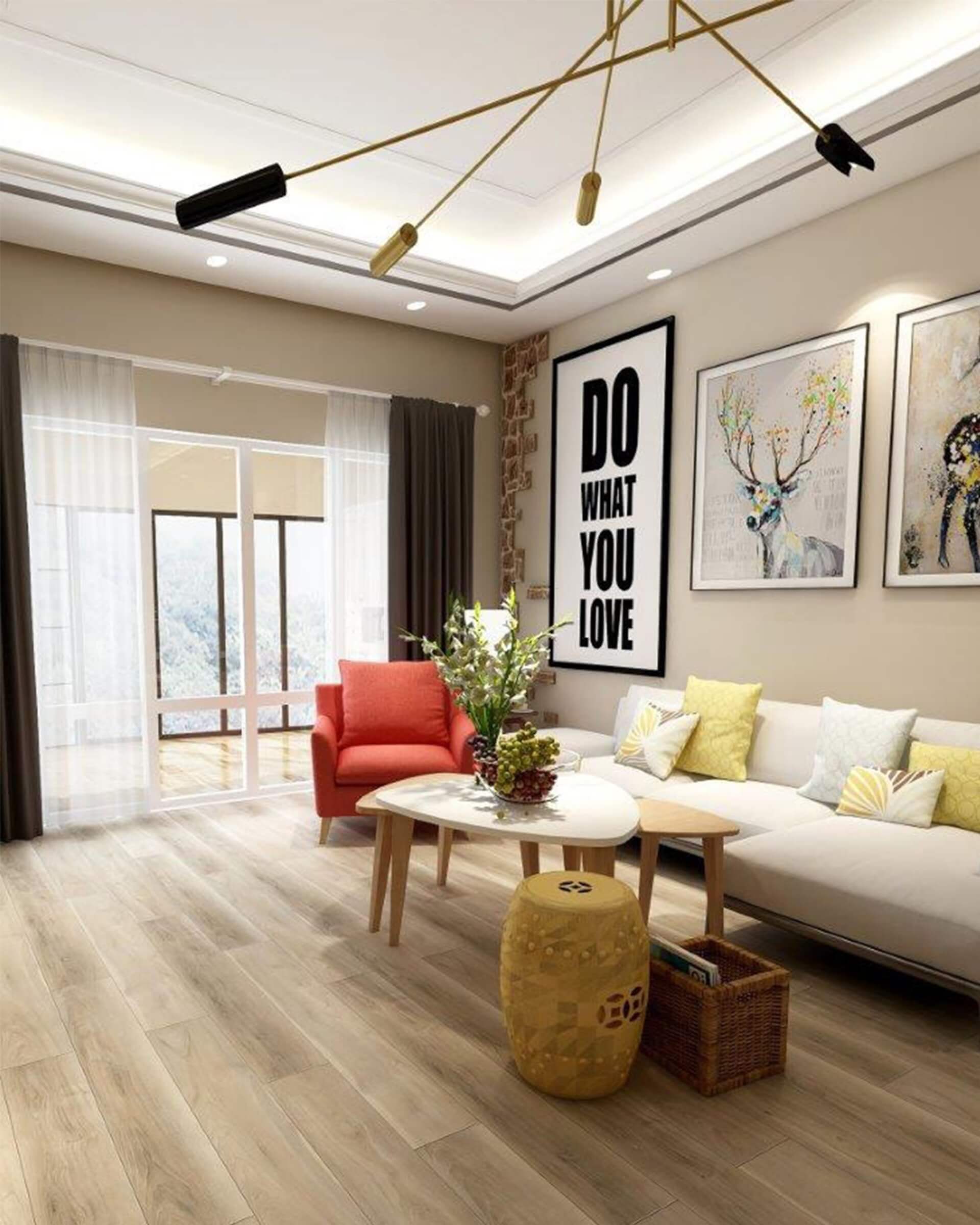
INSTALLATION TIPS
When it comes to high moisture areas such as bathrooms and basements, and to a lesser degree, kitchens, water-resistant product is the preferred material. The new water-resistant laminates and tiles seem to reign in bathrooms and kitchens, with SPC still receiving the thumbs-up from several sources.
For other areas of the home, vinyls still appear to be the preferred product, depending on preference and colour scheme.
If you’re installing new flooring, however, our experts have a few tips.
First, think about who lives in a home, because the members of a household can influence the choice of flooring. Young families need durable flooring that withstands high traffic, spills and pets. As people get older, they tend to replace the more durable materials with higher-end options.
As well, flooring choice is influenced by what part of Canada you call home. Several experts noted different trends in the east versus the west. Within each region, the right flooring choice is also influenced by expected usage. You’re unlikely, for example, to put expensive high-end tiles in a cottage in central Ontario. It’s just not a practical material for a space that is only used for three-quarters of the year.
Taiga’s Sven Johnson told us: “I really impress upon our salespeople and customers that what you should purchase really depends on what space the flooring is going into. As an example, if moisture is a concern, then the luxury vinyl category is the way to go—it checks all of the boxes for water resistance. However, no floor covering can realize its potential until the subfloor is flat, clean and sound.”
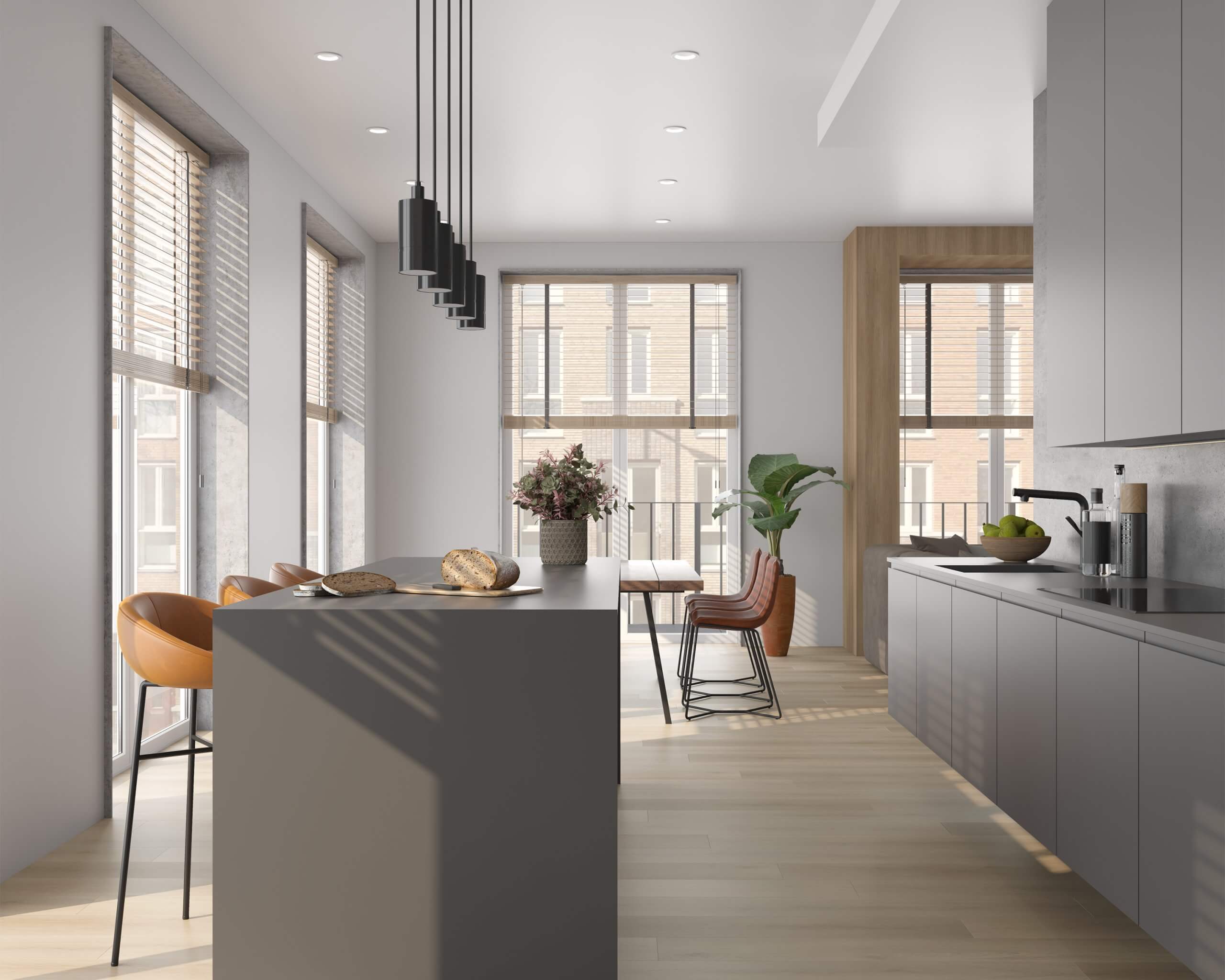
Photo courtesy of Taiga Building Products
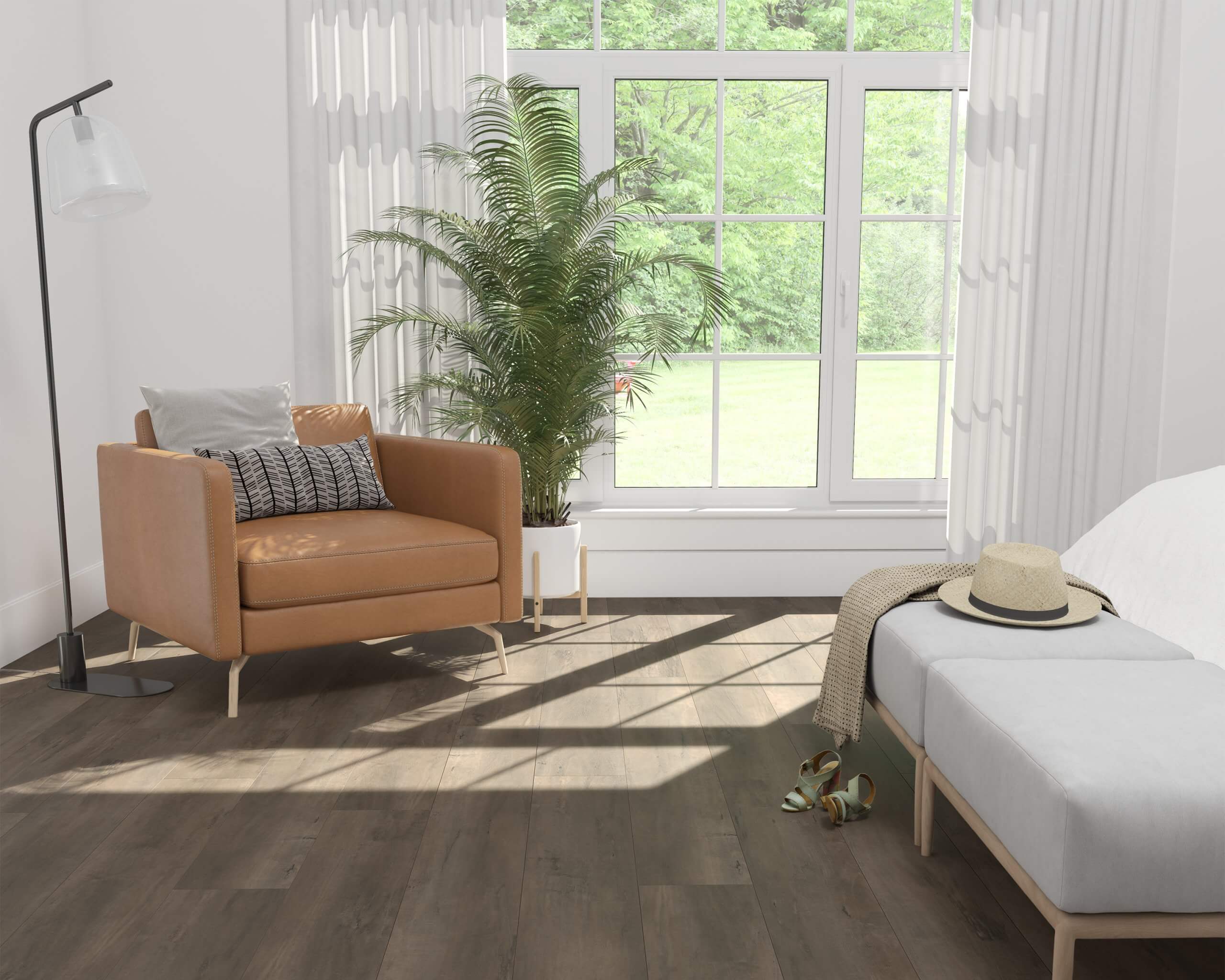
Photo courtesy of Taiga Building Products
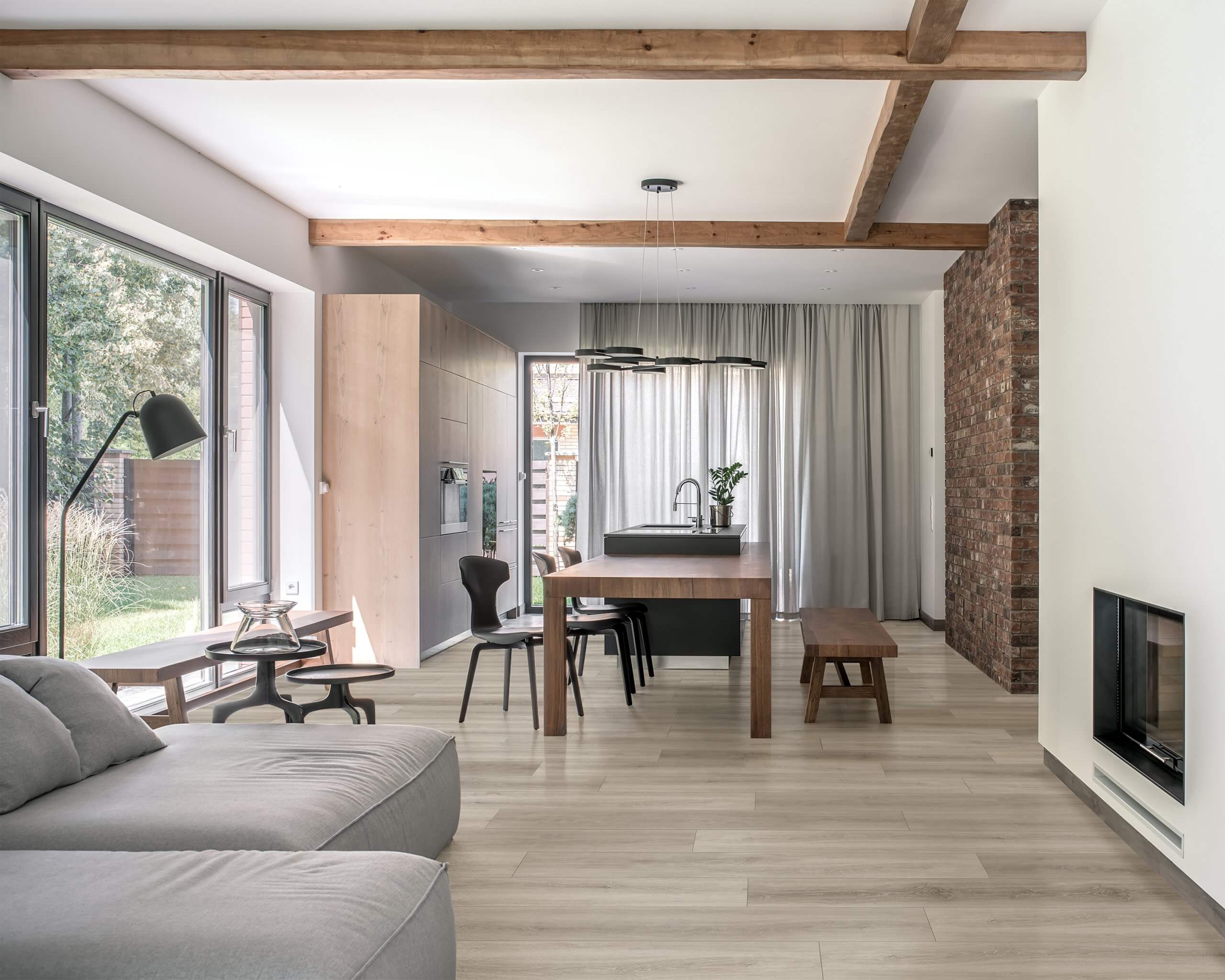
Photo courtesy of Shnier, Gesco LP
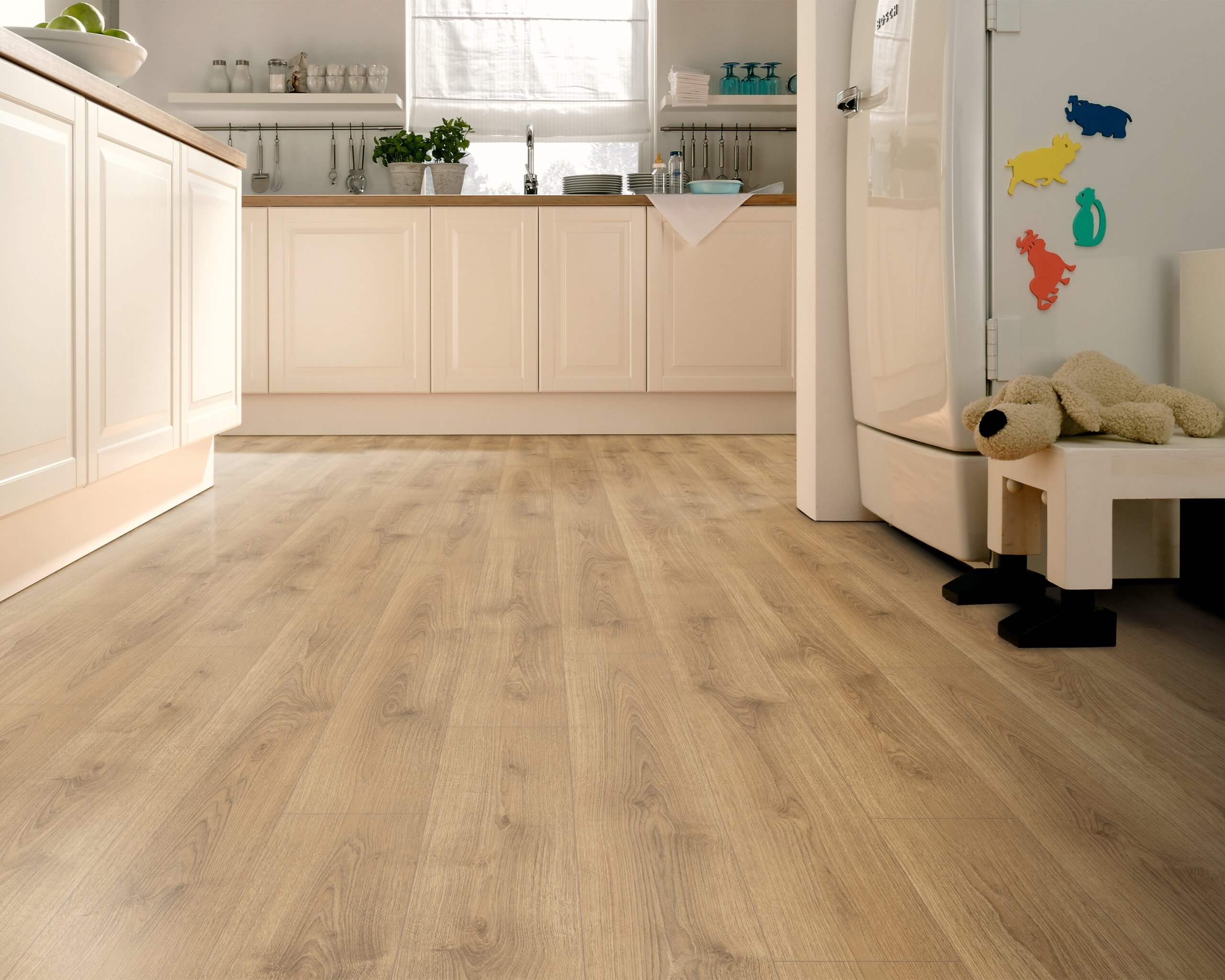
Photo courtesy of Shnier, Gesco LP
Geoff Keats, Vice President of Specialty Products with GILLFOR Distribution, agrees.
“If you’re going to install SPCs in your home, it is extremely important to make sure that your subfloor is level,” he said. “When the industry moved from luxury vinyl planks and tiles to SPCs, it was to address issues with expansion and contraction. SPCs became firmer, but the result is that they’re a bit more brittle, so subfloor installation became even more important.”
To ensure a proper installation, installers must follow manufacturers’ instructions. Keats said these could be moving online soon.
“Right now, we’re looking at taking the installation guidelines out of the packaging. First, it’s greener and there’s less waste. We’re replacing the instructions with QR codes, which everyone got used to utilizing during Covid.
“Almost everyone has a phone and they can just scan a code and go to either a PDF of the same instructions, or to a video of how to install the product. There are a lot of installers out there who don’t speak English or French, and a visual medium will solve any language problems. In fact, we will also be incorporating pictograms on our packaging and shifting away from written instructions.”
As for tiling, a level subfloor is equally important.
“It’s the number one cause of problems. People think it’s a fault in the product, but if you don’t make sure the floor is level, you’re going to have problems,” said Centura Tile’s Angela Molezzi. “People are often just using vinyls and laminates to cover an old floor and it doesn’t get installed properly. When installing ceramics, it’s important that people use the clips that are used in a levelling system. They go in between the grout joints and they use wedges. Using the clips, you can actually level out your floor as you install the tile. It even pushes excess mortar up, and really it’s just as easy as that. It’s an extra step and it costs a bit more, but in the end you know that you won’t have any issues.”
Whether it’s a homeowner who has purchased a new floor covering and installs it over the old material, or contractors not understanding the product or perhaps looking for cheap shortcuts, the failure of most types of flooring would appear to be the result of a subpar subfloor.
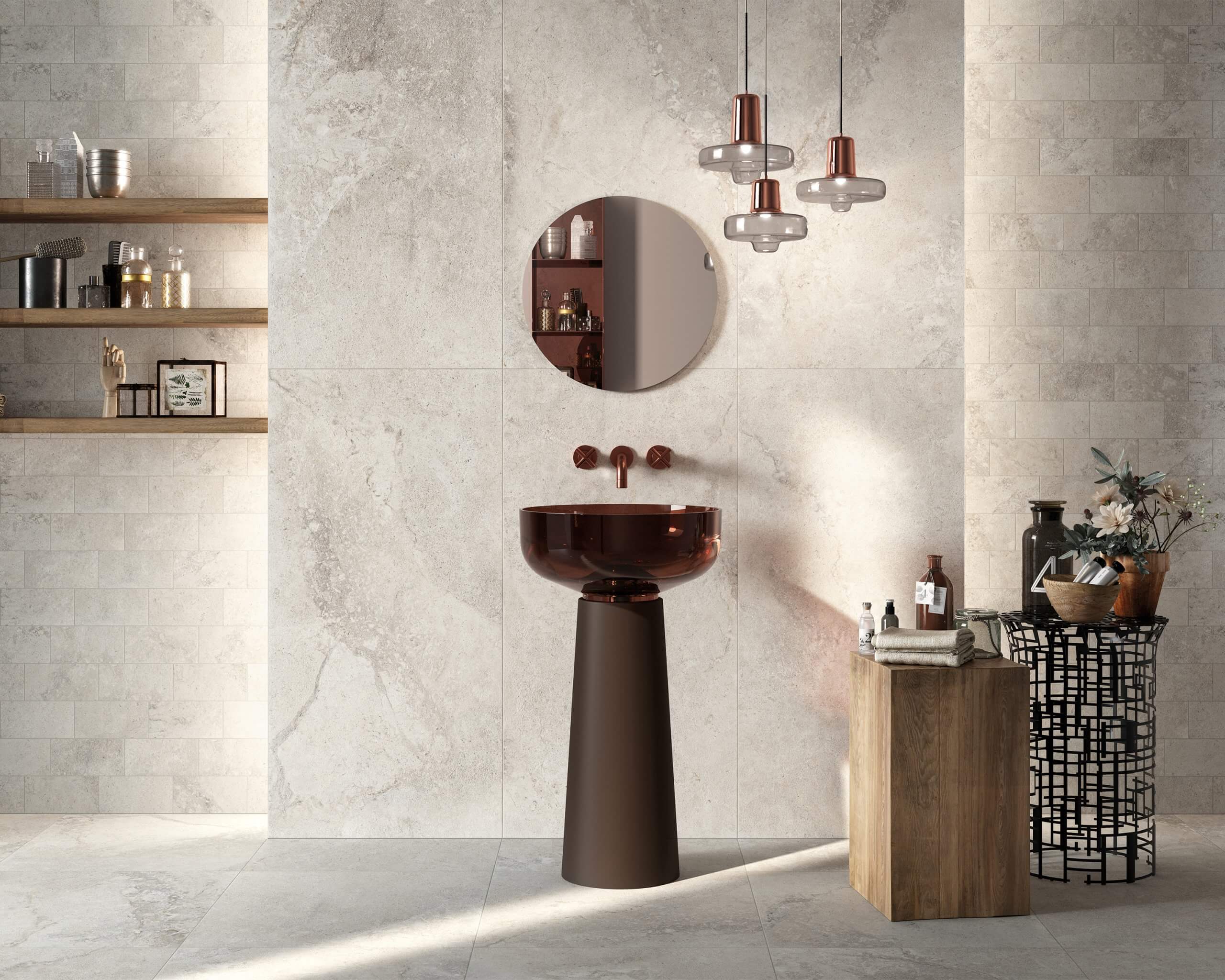
Photo courtesy of Centura Tile
TRENDING ONWARD
As the world hopefully continues to move past Covid-19 and people return to their routines, the boom in DIY home renovations appears to be subsiding to previous levels. New home builds and contractor renovations seem to be continuing at the same healthy pace.
Thanks to increased durability, laminate flooring is enjoying a resurgence in popularity, although vinyl SPC remains a market leader.
One thing is abundantly clear: As long as we continue to rebuild and revise, homeowners will be searching for durable, attractive flooring options in a variety of colours, shapes and textures. –
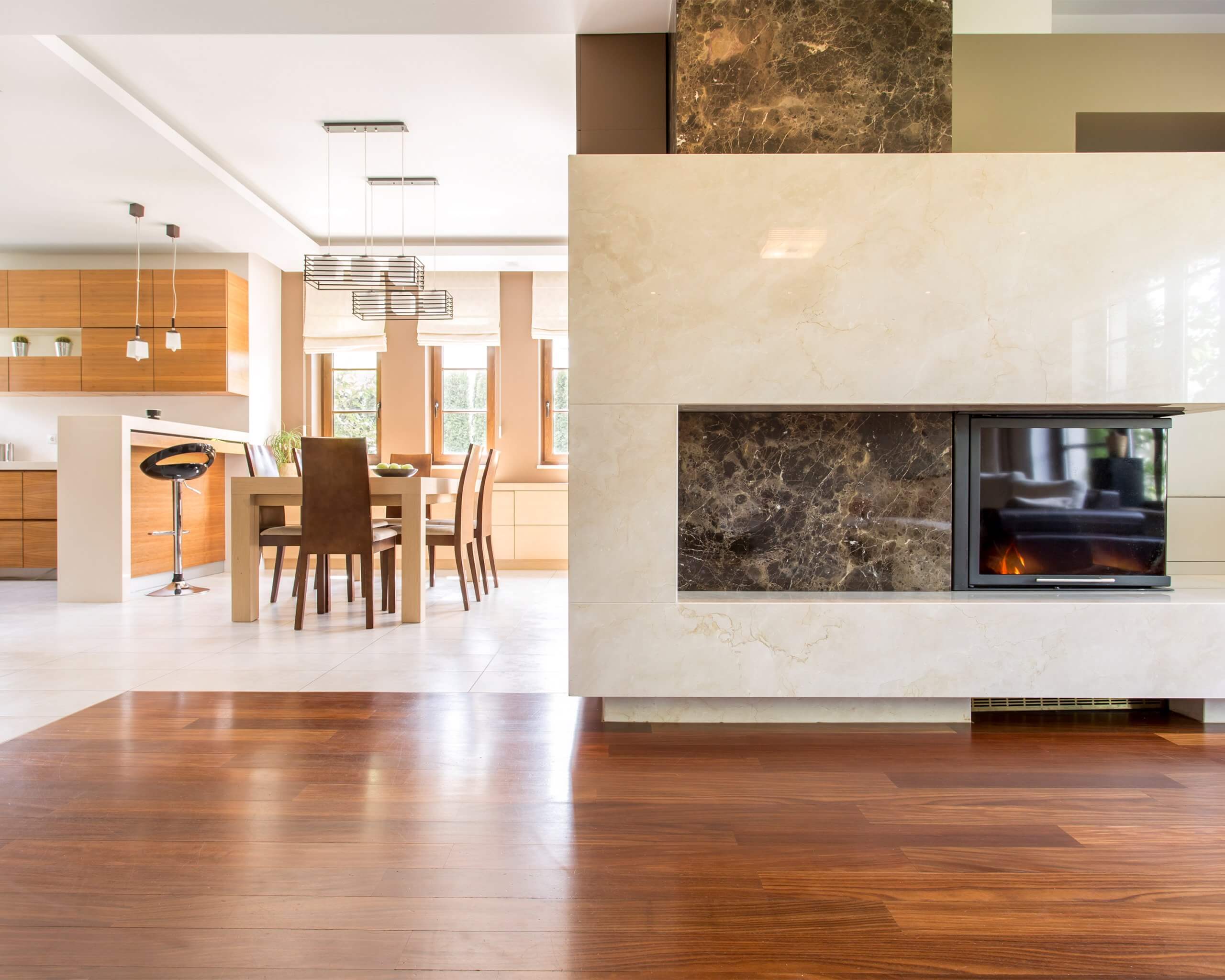
Photo courtesy of AFA
